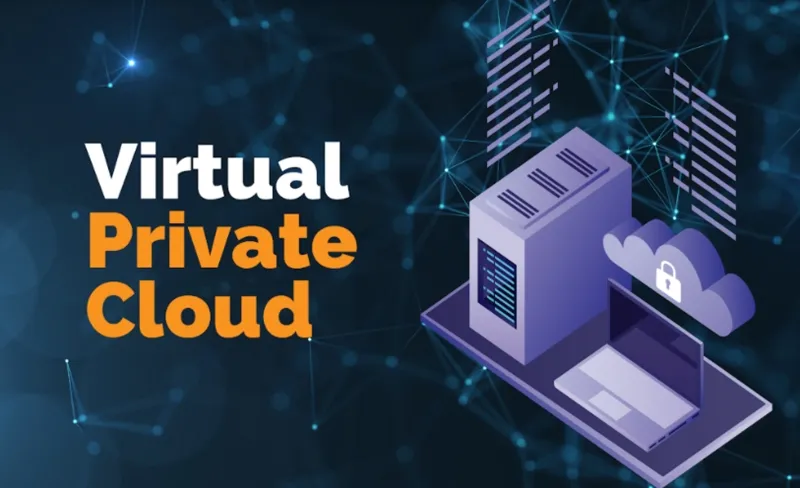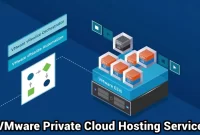
Virtual Private Cloud Features, Benefits, and How to Use
Virtual Private Cloud (VPC) has emerged as a cornerstone of modern cloud computing infrastructure, offering a secure and isolated environment within a public cloud provider. With the rapid adoption of cloud services, organizations have recognized the need for a dedicated virtual network that provides control, privacy, and flexibility. This is where VPC steps in, providing a robust solution for creating customizable network architectures in the cloud. In essence, a VPC is a virtual network that enables users to define their own private network space within a cloud provider’s infrastructure. It allows users to create subnets, define IP address ranges, and configure routing tables and network gateways. With a VPC, organizations can build a secure and scalable network environment for their cloud-based applications and services.

One of the key advantages of a VPC is its ability to establish secure connectivity and isolation. Users can configure network access control policies, define security groups, and set up virtual private gateways to establish secure connections with on-premises networks. This enables organizations to extend their existing network infrastructure seamlessly into the cloud, facilitating hybrid cloud deployments and secure communication between on-premises and cloud resources. Moreover, a VPC provides granular control over network resources, allowing organizations to segment their infrastructure into multiple subnets and apply different network policies and security measures to each subnet. This enables the isolation of workloads, enhances security, and provides a high degree of flexibility in network design.
Understanding Virtual Private Cloud and Functions
A Virtual Private Cloud (VPC) is a virtual network infrastructure that enables users to create and manage their isolated network environments within a cloud service provider’s infrastructure. VPCs provide a secure and customizable network layer for cloud-based resources, allowing organizations to define their IP address ranges, subnets, routing tables, and network gateways.
The primary function of a VPC is to provide network isolation and control. By creating a VPC, organizations can establish a private network space within the cloud provider’s infrastructure, separate from other customers. This isolation ensures that their resources and data are shielded from unauthorized access and provides a secure environment for deploying applications and services.
Additionally, VPCs offer various functions that enhance network management and security. These include:
- Subnetting: VPCs enable the division of network space into smaller subnets, which helps with resource segmentation and fine-grained control over network access. Subnets can be public or private, allowing organizations to configure different access and security policies based on their requirements.
- Routing: VPCs allow the creation and management of routing tables, which determine how network traffic is directed within the VPC and to external networks. Users can define custom routes, implement route prioritization, and configure virtual private gateways for connectivity with on-premises networks.
- Security: VPCs provide built-in security features such as network access control lists (ACLs) and security groups. ACLs act as virtual firewalls, filtering inbound and outbound traffic at the subnet level. Security groups, on the other hand, control traffic at the instance level, allowing organizations to define specific rules for network access.
- Connectivity: VPCs offer various options for establishing secure connectivity with external networks. This includes Virtual Private Network (VPN) connections, Direct Connect (dedicated network connections), and peering connections between VPCs, enabling hybrid cloud architectures and seamless integration with on-premises infrastructure.
In summary, Virtual Private Clouds (VPCs) provide organizations with the ability to create secure and customizable network environments within a cloud service provider’s infrastructure. The functions of VPCs revolve around network isolation, control, subnetting, routing, security, and connectivity, allowing organizations to design and manage their network infrastructure in the cloud according to their specific requirements.
Examples of Using Virtual Private Cloud
Virtual Private Clouds (VPCs) serve several purposes in cloud computing. Here are a few examples:
- Secure Application Deployment: Organizations use VPCs to deploy their applications and services in a secure and isolated network environment. By creating a VPC, they can separate their resources from other users in the cloud and implement security measures such as access controls, firewall rules, and encryption. This ensures that sensitive data and critical applications are protected from unauthorized access and potential security threats.
For example, a financial institution may use a VPC to deploy their banking application. The VPC allows them to create separate subnets for web servers, application servers, and database servers. They can define strict security policies and access controls to ensure that only authorized users can access the application and its associated data.
- Hybrid Cloud Connectivity: VPCs enable organizations to establish secure connections between their cloud resources and their on-premises infrastructure. This facilitates hybrid cloud deployments, where certain workloads or data remain on-premises while others are migrated to the cloud. Through VPN connections or dedicated network connections like AWS Direct Connect, organizations can securely extend their internal network into the VPC, creating a seamless hybrid environment.
For example, a company may have an on-premises data center hosting legacy applications and sensitive customer data. By creating a VPC and establishing a VPN connection, they can securely connect their on-premises infrastructure with cloud resources. This allows them to leverage the scalability and flexibility of the cloud while maintaining control over their sensitive data.
- Network Segmentation and Isolation: VPCs provide organizations with the ability to segment their network infrastructure into multiple subnets, each with its own IP address range and network configuration. This allows for logical separation and isolation of different components or environments within the infrastructure, providing better control and security.
For instance, an e-commerce company may use a VPC to separate their production environment from their development and testing environment. By creating separate subnets and implementing network policies, they can ensure that production data and resources are isolated from the testing environment, reducing the risk of accidental changes or data breaches.
In summary, Virtual Private Clouds (VPCs) are used to create secure and isolated network environments in the cloud. They provide organizations with the ability to deploy applications securely, establish hybrid cloud connectivity, and achieve network segmentation and isolation. VPCs are a fundamental building block for organizations to design, deploy, and manage their cloud infrastructure in a secure and controlled manner.
5 Best VPC Service
When it comes to Virtual Private Cloud (VPC) offerings, several cloud service providers stand out in terms of features, reliability, and customer satisfaction. Here are five of the best Virtual Private Cloud providers that are highly recommended:
- Amazon Web Services (AWS) Virtual Private Cloud (VPC): AWS VPC is a mature and widely adopted VPC service that offers robust network isolation, security features, and scalability. It provides a rich set of tools and features for managing network resources and integrating with other AWS services. AWS VPC also supports advanced networking capabilities like VPC peering and AWS Transit Gateway.
- Microsoft Azure Virtual Network (VNet): Azure VNet offers a comprehensive VPC solution with advanced networking capabilities. It allows users to create secure and isolated virtual networks, define subnets, and control network access through network security groups. Azure VNet integrates seamlessly with other Azure services and provides strong hybrid cloud connectivity options.
- Google Cloud Virtual Private Cloud (VPC): Google Cloud VPC provides a flexible and scalable network environment for deploying and managing applications. It offers features like custom IP addressing, subnets, and firewall rules for network security. Google Cloud VPC also integrates well with other Google Cloud services and offers advanced networking features like VPC peering and VPN connectivity.
- IBM Cloud Virtual Private Cloud (VPC): IBM Cloud VPC offers a secure and customizable network environment for deploying applications and services. It provides features such as network isolation, secure connectivity options, and integration with other IBM Cloud services. IBM Cloud VPC also offers compliance and governance capabilities to meet regulatory requirements.
- Oracle Cloud Infrastructure Virtual Cloud Network (VCN): Oracle Cloud VCN provides a robust and scalable VPC solution with advanced networking features. It offers granular control over network configurations, including IP address management, subnets, and security rules. Oracle Cloud VCN also supports secure connectivity options like VPN and FastConnect for seamless integration with on-premises networks.
These Virtual Private Cloud providers are well-established, offer comprehensive features, and have a proven track record in the cloud industry. However, the choice of the best VPC provider ultimately depends on specific requirements, such as the desired features, integration capabilities, pricing, and geographic availability. It is recommended to evaluate each provider based on individual needs to make an informed decision.








